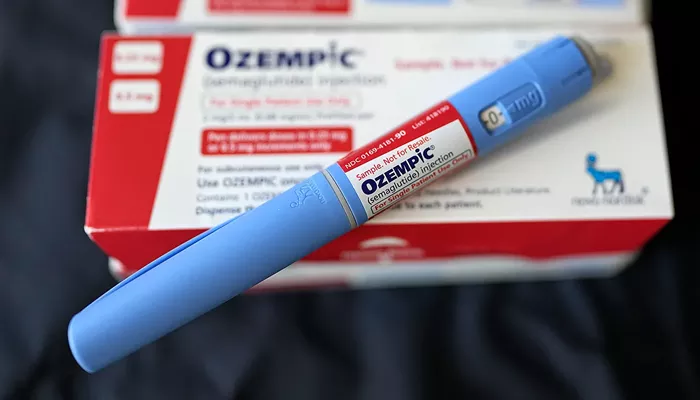A ban on copycat versions of weight loss drugs containing the active ingredient tirzepatide went into effect on March 19. A similar ban on semaglutide-based alternatives is expected to begin as early as April 22.
The bans follow updated guidance from the U.S. Food and Drug Administration (FDA), which aims to stop compounding pharmacies from producing cheaper versions of Eli Lilly’s weight-loss drugs, Zepbound and Mounjaro, as well as Novo Nordisk’s Ozempic and Wegovy. The FDA issued the new guidelines after a federal judge ruled against the Outsourcing Facilities Association (OFA), which had filed a lawsuit on behalf of pharmacies selling these unapproved medications.
Compounded drugs are not FDA-approved, meaning the agency does not assess their safety, effectiveness, or quality. However, they can be sold under certain conditions. In December 2022, telehealth companies like Eden, Mochi, Ro, and Hims & Hers were allowed to offer compounded alternatives to address shortages caused by increased demand.
The shortage was declared over by the FDA in December 2024, prompting a transition period for pharmacies to halt the production of these medications, which remain under patent protection. Eli Lilly and Novo Nordisk now hold exclusive rights to the drugs.
Patients who have relied on the less expensive medications are worried about the potential loss of a treatment that has helped them lose weight. They now face the choice of paying higher prices for the brand-name versions or discontinuing GLP-1 drugs and risking weight regain.
Experts warn the FDA’s decision could leave many without access to a vital tool for weight management. Dr. Mir Ali, a general surgeon and medical director of MemorialCare Surgical Weight Loss Center in California, noted, “These drugs are the most effective medications for weight loss right now.”
Impact on Drug Supply and Pricing
A key question is whether Eli Lilly and Novo Nordisk will be able to meet demand once compounding pharmacies stop producing these medications. There are also concerns that the removal of competing products could drive up prices for Ozempic, Zepbound, Wegovy, and Mounjaro. Eli Lilly and Novo Nordisk did not respond to requests for comment on these issues.
However, companies selling compounded versions of these drugs have pledged to continue helping their customers. “We will continue to ensure that our patients have access to the best treatments and comply with FDA rules on compounding,” said a spokesperson from Ro.
Hims & Hers, another company offering compounded semaglutide, emphasized the importance of affordable, accessible treatments, noting the ongoing obesity epidemic in the U.S.
Despite these commitments, Dr. Ali expressed concerns that even if Eli Lilly and Novo Nordisk can produce enough medication, many people might not be able to afford the brand-name versions due to a lack of insurance coverage. He also warned that consumers might turn to unregulated products from outside the U.S., which could be dangerous.
Personal Stories of Concern
Bailey Fields, 27, from Minnesota, has polycystic ovarian syndrome (PCOS), which can lead to weight gain and an increased risk of type 2 diabetes. She currently uses a compounded semaglutide product from Hims & Hers, which costs her $199 per month, compared to $675 for the brand-name version of Mounjaro. However, Fields’ insurance only covers weight loss medications if she develops diabetes, so she faces a difficult decision if she can no longer afford the compounded version.
Similarly, Todd Kennedy, 45, from Tennessee, relies on compounded semaglutide to maintain his weight. He currently pays $165 per month, but the brand-name drug would cost him $1,500. Kennedy called the FDA’s decision “short-sighted,” emphasizing that the ban would take away an important tool for people struggling with weight management.
How GLP-1 Drugs Aid Weight Loss
Drugs like Wegovy and Zepbound, which have FDA approval for weight loss, and Ozempic and Mounjaro, which are approved for type 2 diabetes but used off-label for weight loss, work by influencing hormones that control appetite. Patients using these drugs typically follow a diet and exercise plan in conjunction with the medication.
Dr. Ali explained that these drugs are effective because they target the underlying causes of weight gain, making them more successful in helping patients manage their weight long-term. He noted that there is a shift toward treating obesity as a chronic disease, rather than just focusing on temporary solutions.


